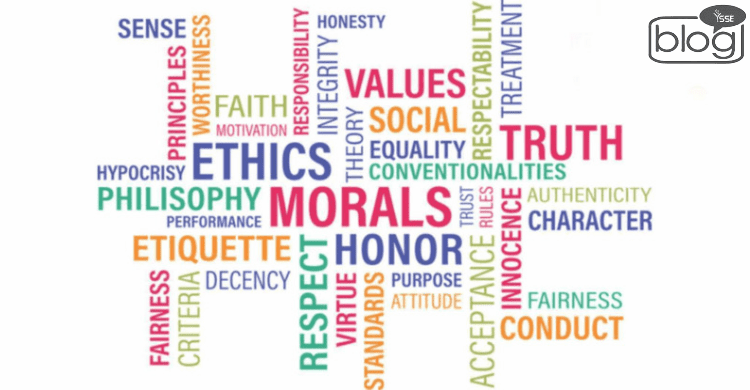The word netiquette means the rules of demeanor for proper and respectful communication on the internet. It is a made up word which includes the words ‘net’ and ‘etiquette’ in it. Internet etiquette or netiquette applies to the web users of any age, just like manners do in an ideal environment. This word implies a perfect pattern of conduct for Internet users, guidelines about what is admissible in an online means of communication for professional and personal use.
Reasons why netiquette is important:
Netiquette is important as it stands of the rules that stirs up the courteous and appropriate online behavior. These rules are effective as they encourage communication skills, prevent miscommunications, avoid potential conflicts, and help students understand what is socially acceptable when working and collaborating online.
In this world of digital communication, this helps to navigate the upcoming and everyday challenges that may come up while communicating and help us evolve in these digital learning and educating environments in which people feel respected and safe. While writing emails, the netiquette guidelines help to maintain the balance of professionalism in between the recipients and the user.
Ways to practice netiquette:
We must not forget that if it is inappropriate face to face, then it is inappropriate online behavior either.
➢ Use of proper language: Students should be scholarly, use proper grammar, spelling, give credit to the others, credit the citations and links as per as the online resources. No use of foul language and derogatory statements. Use of all caps should be avoided as those could be easily misinterpreted as shouting. One can use bold or italics for emphasizing.
➢ Be respectful: They should respect other people’s opinions, privacy and diversity that differ from their own. Students have patience for their mistakes and say thank you and please. Be aware that online classes or courses are being recorded, so best to be in everyone’s good behavior.
➢ Use of professionalism: Participating in hostile interactions must not be done. Students should address their instructors and classmates professionally in discussion boards, mails and other means of communication. They should represent themselves well at all times, be accurate and truthful.
➢ Practicing politeness: Students should address others by their given titled names whilst being mindful of their own tone. Jokes and sarcasm are easily misunderstood through texts, best to not use these with seniors. Being rude must be avoided strictly. Mocking or criticizing people for their opinions should be avoided. It’s not easy to take or give criticism, they should think of how they want to be treated.
➢ Focusing on quality: Students should come up with adding to the consultation, not by repeating in their own words what others have already posted. Furthermore, students should recheck before they post, submit work free of grammatical and spelling mistakes or inaccuracies. Posts should be interpreted correctly and all requirements should be included.
Last but not the least, and the most important one, the students’ required behavioral standards must match with the student code of conduct and its agreements and conditions. Students must remember that we are all human, we are talking to real people with real feelings, emotions, lives and opinions. Every student and instructor should be respectful and kind to each other regardless of their race, gender,culture and religious beliefs.
Incorporating these online etiquette or netiquette guidelines into online classes and courses greatly helps us connect with the world and its people in the best way possible.
To read more blogs, click here.
Writer,
Tahiya Masud
Intern,
Content Writing Department
YSSE

